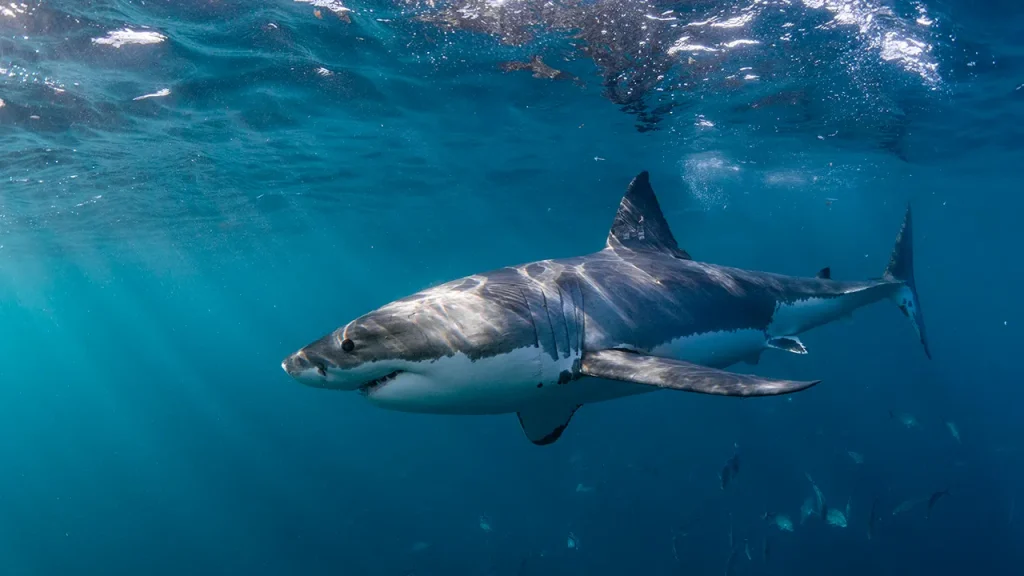Florida Man Survives Harrowing Shark Attack While Snorkeling
In a frightening encounter that highlights the unpredictable nature of marine wildlife, 46-year-old Yosvany Echevarria is recovering after being bitten multiple times by a shark while snorkeling off Boca Chita Key in Florida’s Biscayne Bay. The attack, which occurred on Saturday, October 25, left Echevarria with severe injuries to his arm requiring 27 stitches. The Cuban immigrant, who moved to the United States just three years ago, recounted his terrifying experience: “I was diving in the water and snorkeling, and a shark lunged at me, at my hands.” Emergency responders from Miami-Dade Fire Rescue quickly answered the call around 11:30 a.m., airlifting Echevarria to a nearby hospital for treatment. Despite the trauma, Echevarria considers himself fortunate that his injuries weren’t more devastating. “He could have ripped my arm off,” he reflected, still processing the close call that transformed a peaceful snorkeling excursion with friends into a fight for survival.
The incident adds to the growing tally of shark encounters in Florida waters, a region well-known for its high concentration of shark activity. According to tracking data, Florida has already recorded 10 shark attacks this year, contributing to the national total of 51 reported incidents. The Sunshine State consistently leads the nation in shark encounters, with areas like Hollywood Beach near Miami and Boca Grande in southwest Florida emerging as particular hotspots. This pattern was similarly evident last year when Florida accounted for 14 of the 28 unprovoked shark attacks reported in the United States, representing nearly half of all such incidents nationwide. Researchers and marine safety experts continue to monitor these trends closely, especially as human recreational activities increasingly overlap with shark habitats along Florida’s extensive coastline.
For Echevarria, the attack came without warning in what should have been a relatively safe recreational area. “We were swimming there by the beach,” he explained through a Spanish interpreter, still visibly shaken by the experience. The shark reportedly bit him more than half a dozen times, causing immediate pain and panic. Fortunately, Echevarria and his companions were swimming near the shore when the attack occurred, allowing them to quickly exit the water and summon help. “We got out because we were close to the shore, and we called someone to pick us up,” he recounted. The proximity to land and swift medical response likely prevented more serious complications from his wounds, underscoring the importance of swimming in groups and staying near shore in shark-inhabited waters.
The psychological impact of such an encounter often lingers long after physical wounds have healed. Shark attack survivors frequently report experiencing anxiety, trauma, and a newfound wariness of ocean activities following their ordeal. For Echevarria, who likely envisioned peaceful exploration of America’s beautiful coastlines after immigrating from Cuba, this traumatic experience represents an unexpected challenge to overcome. Nevertheless, his attitude remains remarkably measured given the circumstances. Rather than expressing anger toward the shark or swearing off water activities altogether, Echevarria has focused on using his experience to promote awareness and caution among other beachgoers. His balanced perspective reflects a growing understanding among many coastal residents that sharks are not malicious creatures but rather predators occasionally mistaking humans for their natural prey.
This incident occurs against the backdrop of evolving public attitudes toward shark encounters. Marine biologists emphasize that despite their fearsome reputation, sharks rarely target humans deliberately, with most attacks resulting from mistaken identity, defensive reactions, or investigative bites. The International Shark Attack File, maintained by the Florida Museum of Natural History, recorded 71 shark bites worldwide in 2022, with 47 classified as unprovoked. While these statistics might seem alarming, experts consistently note that the risk of a shark attack remains extraordinarily low compared to other recreational hazards. In fact, mundane coastal activities like driving to the beach or swimming in unguarded areas present far greater statistical dangers. Yet shark encounters continue to capture public imagination and media attention due to their dramatic and primal nature.
Having survived his harrowing experience, Echevarria now carries both physical scars and a message of caution for others. “My advice to people is if they are going to get in the water, they need to be careful. It could have been much worse,” he warned, acknowledging his relative good fortune despite the trauma. His encounter serves as a potent reminder that while Florida’s waters offer spectacular recreational opportunities, they also demand respect for their wild inhabitants. As summer approaches and more people flock to Florida’s beaches, marine safety officials will likely increase their vigilance and educational efforts. Echevarria’s story, though frightening, provides valuable perspective on coexisting with marine predators: awareness, preparedness, and respect for the ocean environment remain our best defenses against rare but potentially dangerous wildlife encounters. For now, he focuses on recovery, grateful that his story is one of survival rather than tragedy.


